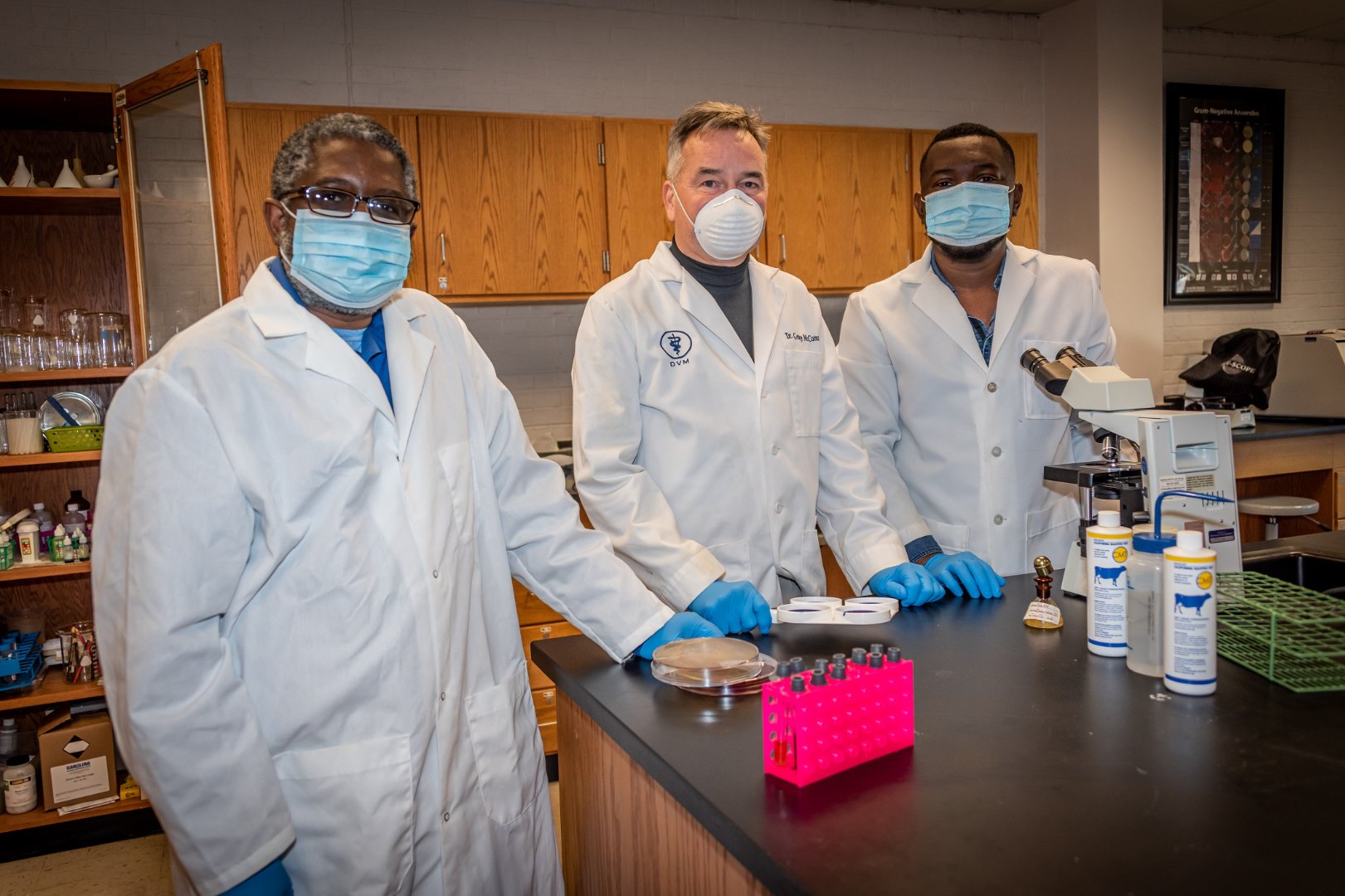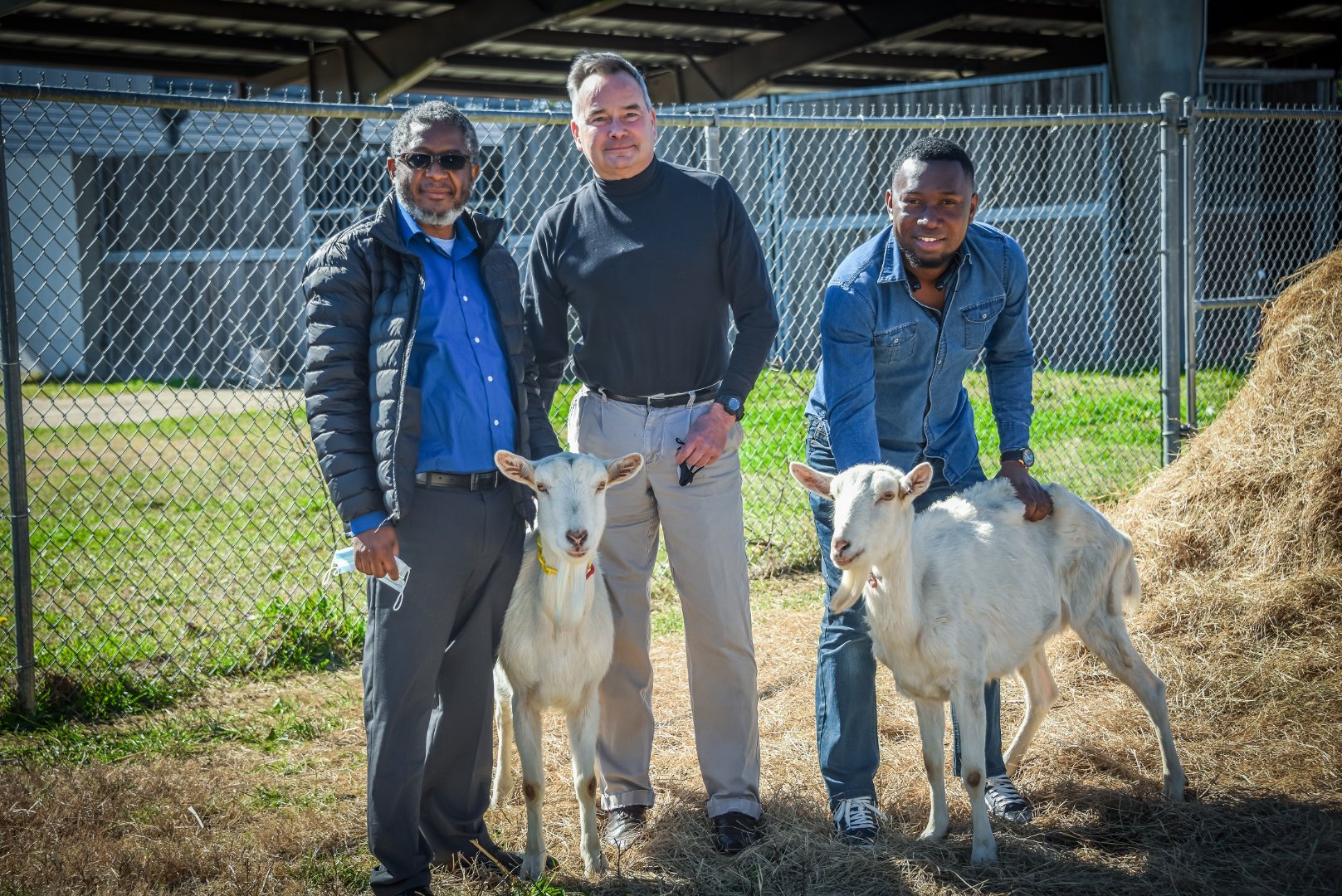Treating a common disease that decreases milk production in dairy animals may require fighting off this serious infection with good bacteria.
Mastitis, an inflammation or infection of the mammary glands, can develop in the udder of dairy goats. Due to the negative effects of this disease on herds, Dr. George McCommon, head of Fort Valley State University’s Veterinary Science Department, and his team began researching treatment options for mastitis in goats in March 2016. He said with antibiotics, there is a potential for drug residue in the milk and antibiotic resistance in the goats.
“During this five-year project, we have shown that probiotics work. We do not have to worry about drug resistance or drug residue. This research is helpful for the average consumer, as well as farmers and their ability to treat their animals,” McCommon said.
The veterinary science professor noted human consumption of goat’s milk, due to its health benefits, has increased dramatically. Goat’s milk is easier to digest than cow’s milk and is less likely to cause lactose intolerance.
McCommon said their research involved collecting samples from hundreds of dairy goats on campus that had mastitis and those that did not have the infection. First, they cultured the samples and examined how well antibiotics worked to treat the bacteria. Then, they switched to probiotics. To their surprise, they found that several probiotics worked better than others.
“Now we are at the point of fine-tuning our research,” McCommon said. “We gradually moved from using a lot of antibiotics to using only a few to using probiotics and no antibiotics.”

He noted there are few studies conducted about mastitis in goats. To set the stage for this impactful research, McCommon said it is extraordinary because many people on campus came together to help with samples, and it has been a valuable hands-on experience for 16 Master of Public Health students.
“We were able to give them that background in microbiology,” McCommon said.
One of those former students includes Dr. Kingsley Kalu, a research assistant in the Veterinary Science Department. The 2018 alumnus said when he started the program, he learned about the mastitis project.
“I was really impressed with the research because the novel use of probiotics will lead to a reduction in antibiotic resistance to both animals and humans, which is a public health concern,” he said. “My interest in FVSU’s Master of Public Health program was because of the concentration in environmental health, which focuses on the role that animals and the environment play in the prevalence of human diseases.”
Interested in clinical medicine, Kalu is a physician from Nigeria with more than seven years of experience. He said with the vast experience he has acquired at FVSU, he intends to continue doing research in the United States in areas that connect human diseases, zoonotic diseases and the environment, otherwise known as One Health, an emerging area in public health.
“COVID-19 is an example of a viral disease that originated from animals and is now affecting human beings,” Kalu said.
Ultimately, the research assistant aspires to give back the knowledge he acquired as a student and as a researcher to his home country to help prevent diseases.
“With the experience gained from the mastitis project, I had the opportunity to be involved in several ongoing research projects in the department. I am also conducting my own research project, a pilot study on the prevalence of hypertension and obesity among students in rural Historically Black Colleges and Universities (HBCUs),” Kalu said.
In addition to his role as a research assistant, he tutors undergraduate and graduate students on various laboratory experiments and discusses the relevance of environmental health as it relates to public health. He also conducts literature reviews for faculty members’ research projects.
McCommon thanked Kalu and veterinary science professors Dr. Saul Mofya, Dr. Oreta Samples and Dr. Lori Stose for their work on the Evans-Allen project.
“We appreciate the opportunity and the U.S. Department of Agriculture’s (USDA) National Institute of Food and Agriculture (NIFA) for funding it,” he added. “We are at the start of some very good research.”

